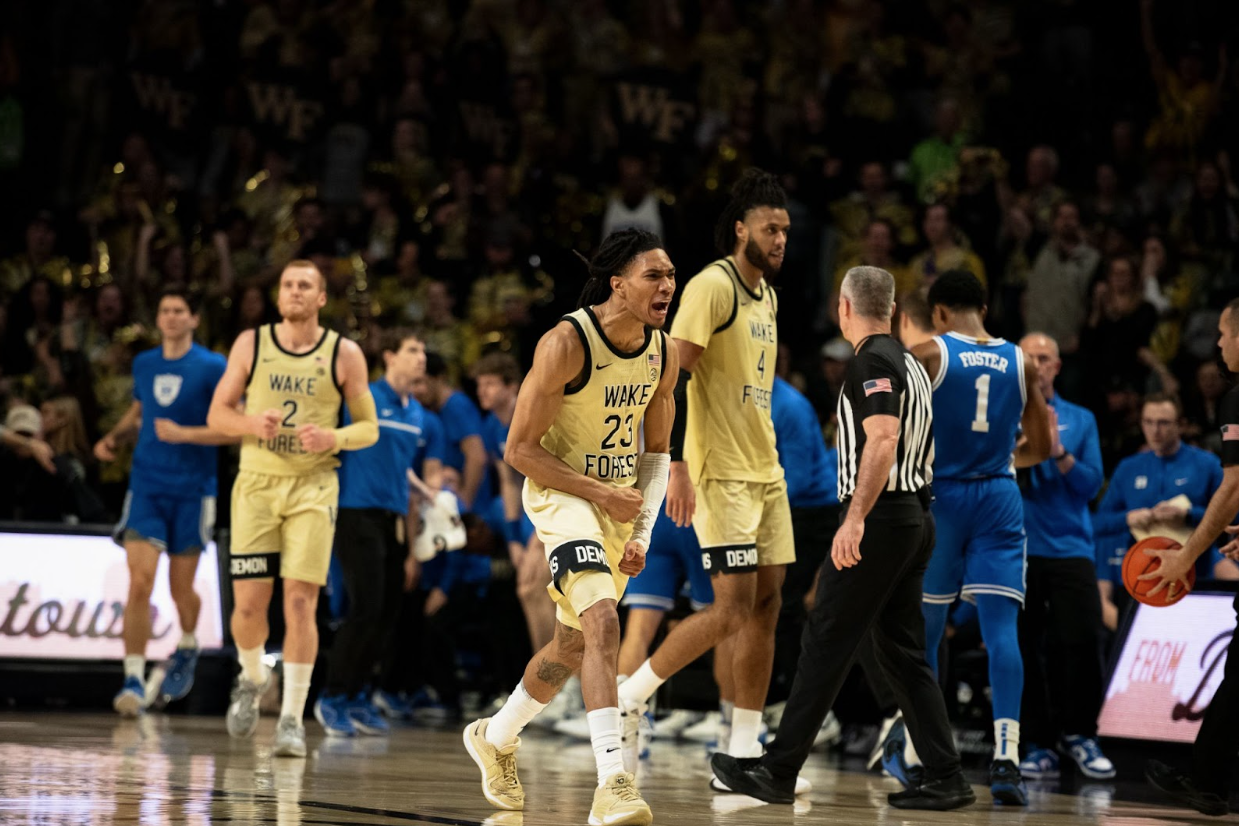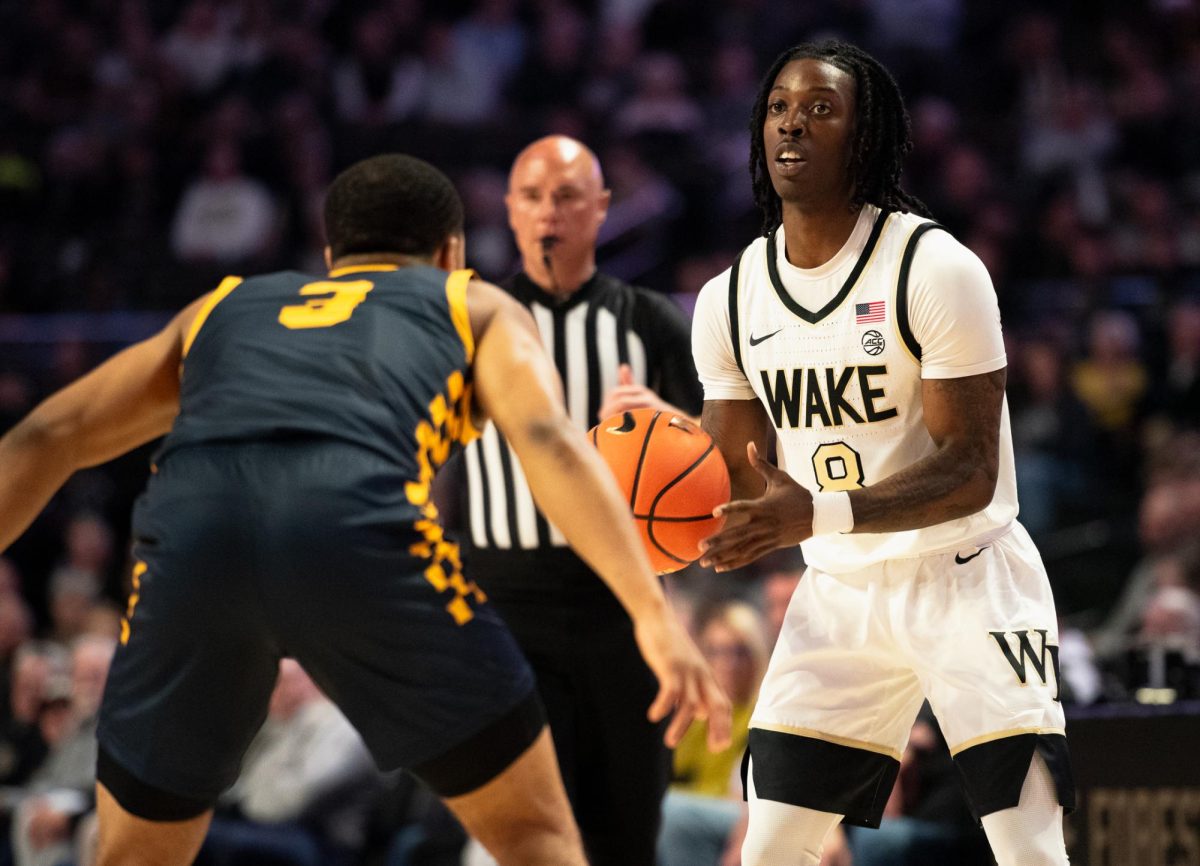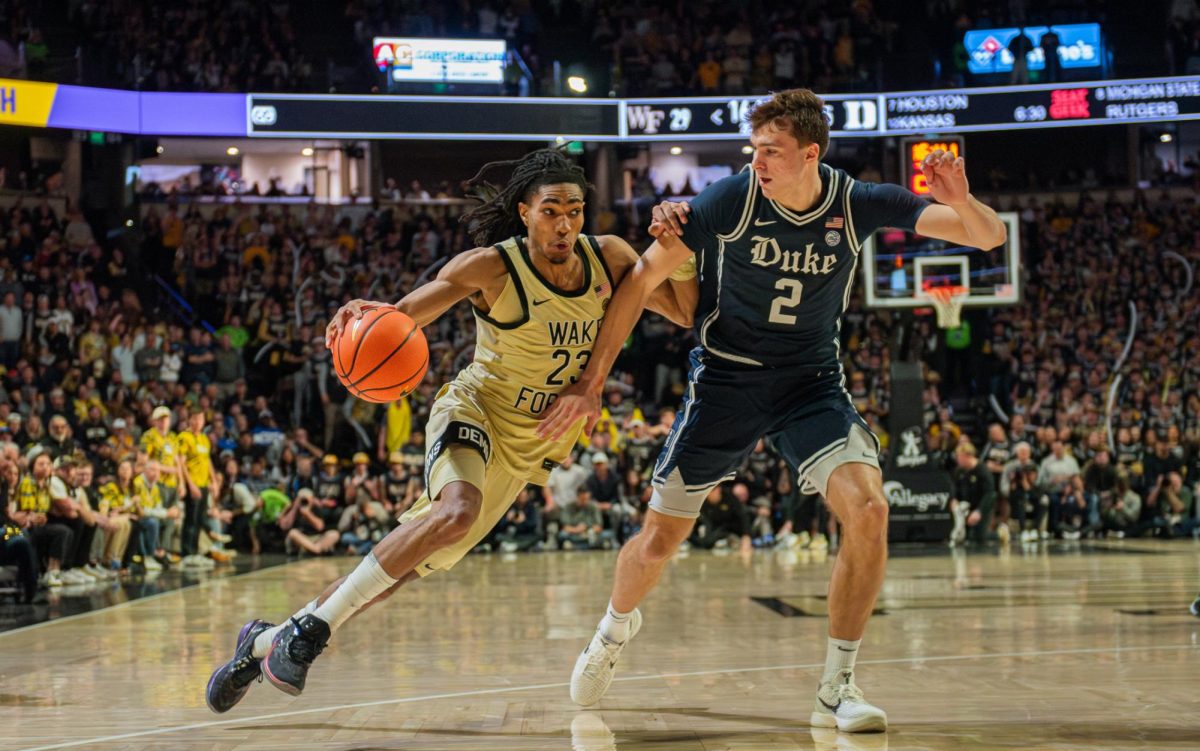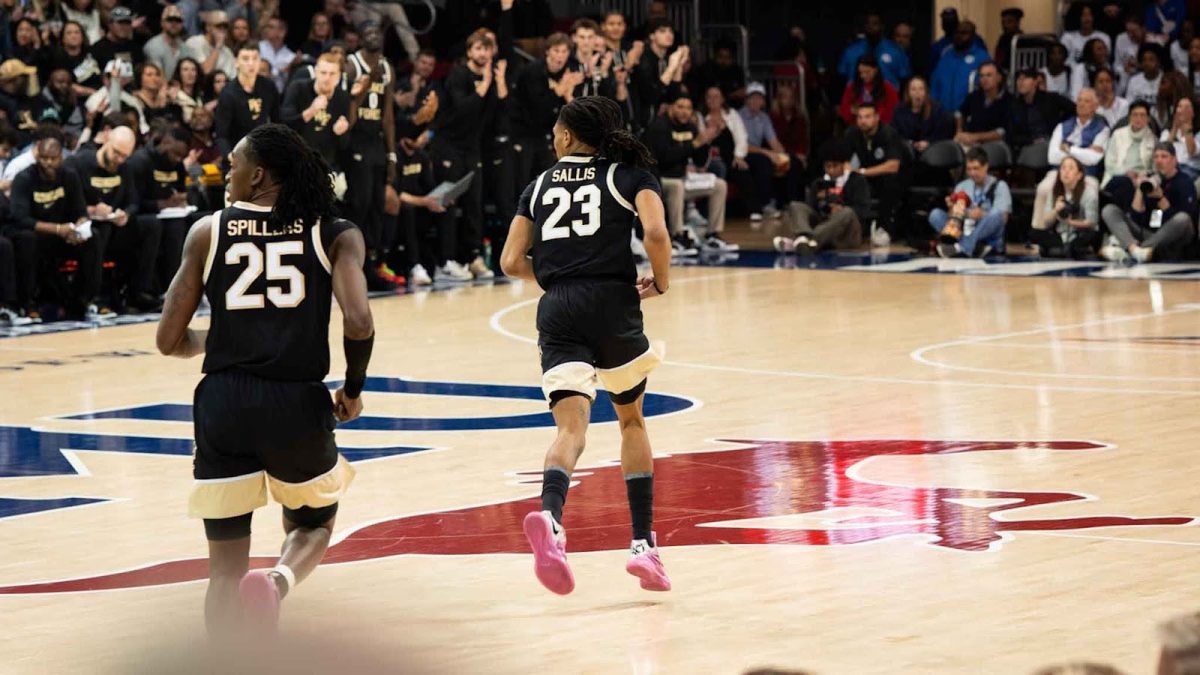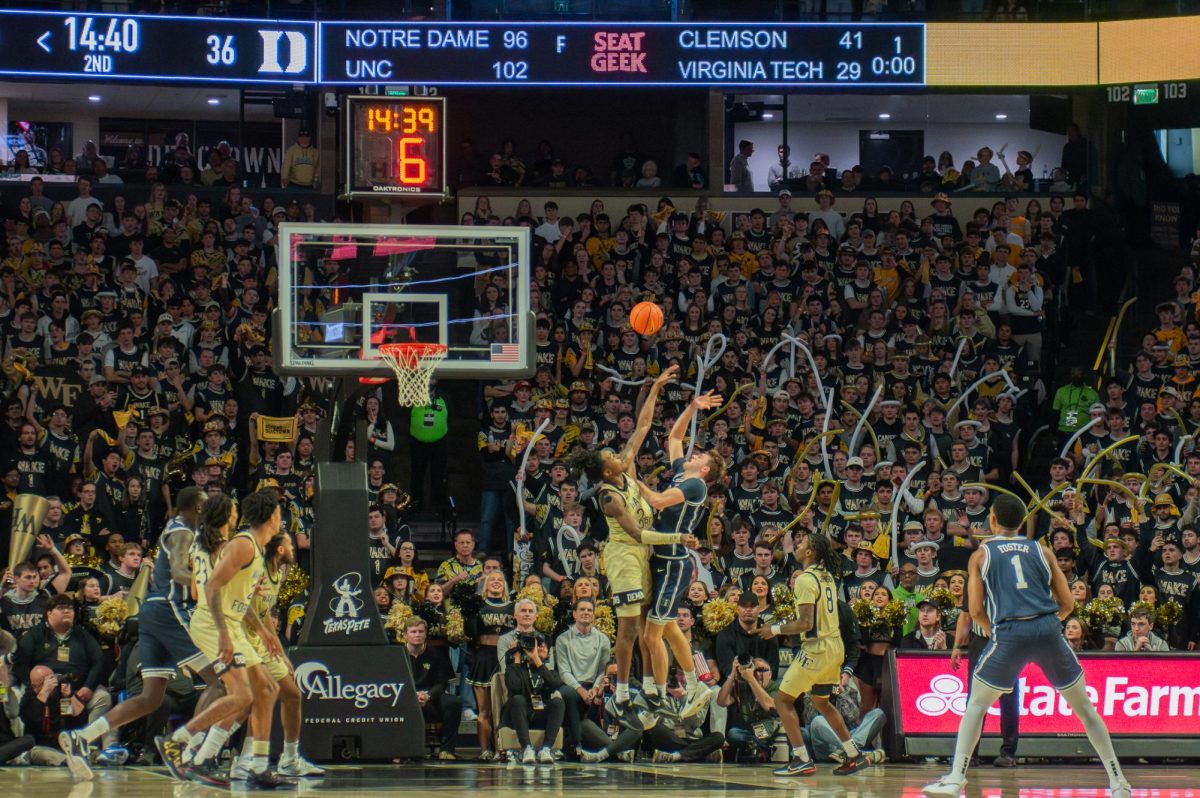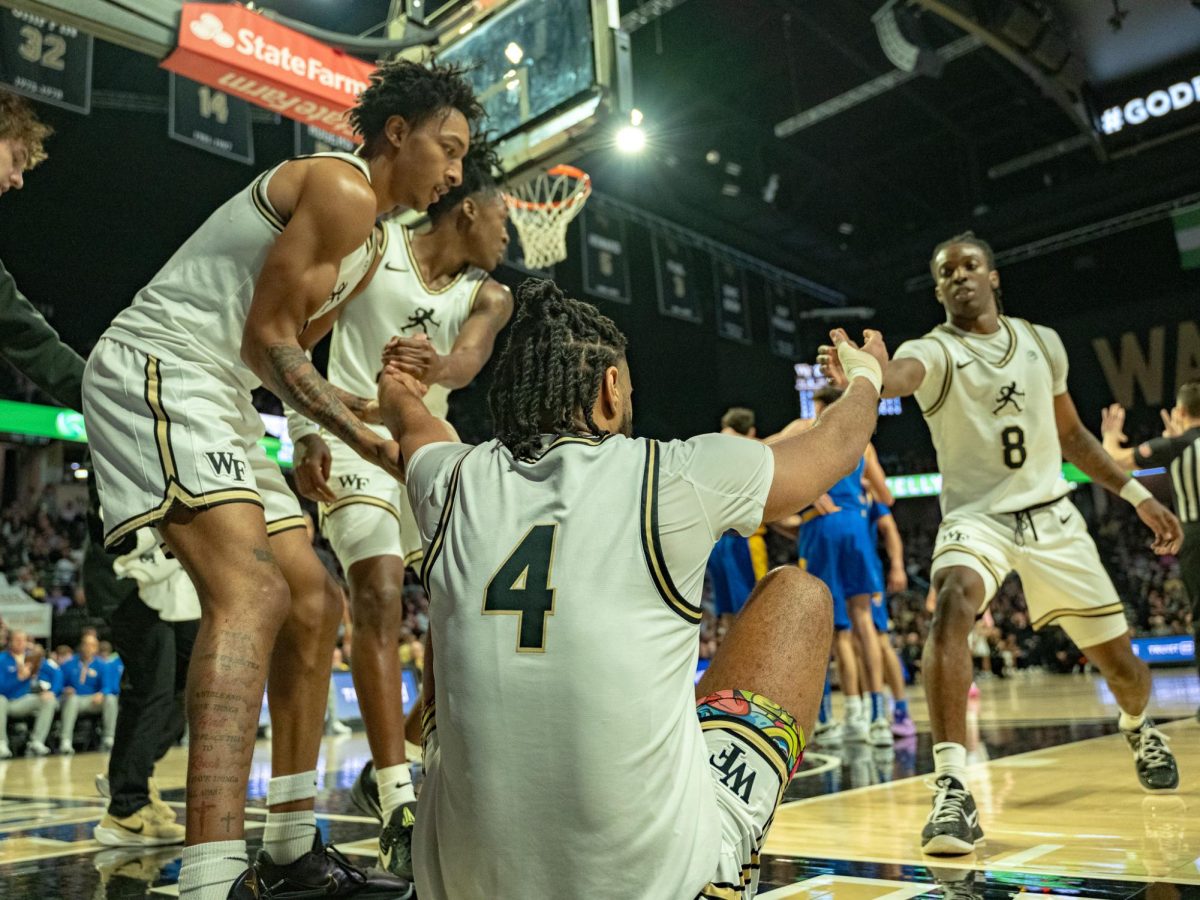In just two weeks, Wake Forest’s season-long goals have come to rest on the ACC Tournament.
While the Demon Deacons were well-positioned to make a run in their conference bracket as a top-four team in the ACC for much of the season, a recent three-game slide before beating Clemson this past Saturday sent Wake to fifth place and out of a guaranteed spot in the tournament’s quarterfinals. At the same time, Wake has quickly gone from being a near-guaranteed seed in the upcoming NCAA Tournament to the wrong side of the March Madness bubble looking in.
If the Demon Deacons want to redeem themselves as worthy of competing on the national stage later this month, they’ll have to make a deep playoff run in this week’s ACC Tournament in Washington, DC.
Unfortunately for Wake Forest, the chance at an ACC Championship or a spot in the March Madness bracket runs through Capital One Arena in Washington and not their home court at the LJVM Coliseum. Playing on the road has arguably been Wake Forest’s biggest struggle as a team this season. The Demon Deacons are 2-9 in the conference outside of the Joel, where they stayed undefeated through 15 games until failing to comeback against Georgia Tech last week.
While the biggest question remains “how will Wake Forest play on the road,” there is much that this team can control to improve itself and make a deep run in the conference tournament.
Keys to success
Score early: For one thing, Wake Forest’s offense is still elite in the ACC. The Demon Deacons are averaging over 78 points per game, and have scored 5+ first-half 3-pointers in three of their last four matchups. The more the Demon Deacons can run up the score in the first half, the better chance they have of surviving another second-half rally from their opponent and avoiding a comeback disaster.
Play second-half defense: Even so, having a monster first half hasn’t proven foolproof for Wake. The Demon Deacons’ innumerable second-half collapses on the road have too often come on the heels of comfortable halftime leads.
Wake’s trouble holding leads had remained much of a mystery until Head Coach Steve Forbes recently identified an issue that he says accounts for much of his team’s struggles on the road.
“When we don’t score the ball, then that carries over to defense and we don’t do well on the other end,” Forbes said after Wake Forest fell to a comeback by Virginia Tech on March 2.
It’s as simple as that. Defending large leads and playing consistent offense shouldn’t be contingent upon each other. If Wake Forest can separate its ability (or inability) to score from playing quality defense in the second half, that can make their big offensive first halves actually worth something.
Get big: When the 3-pointers don’t fall, feed the ball down low. Junior center Efton Reid III and senior forward Andrew Carr have proven indispensable as starters for Wake Forest. In their last six games, Wake Forest is 3-1 when Carr and Reid III combine for 22+ points. Especially with the way that this team can drive to the basket, giving the ball up in the post has shown to improve the Demons Deacons’ chances significantly.
What Wake can do
Wake Forest has a plausible path to reaching the semifinals and staying in Washington, DC until Friday. The Demon Deacons will first play the winner of Georgia Tech and Notre Dame’s first-round game on Monday.
Uncharacteristic of Wake Forest’s track record featuring homecourt blowouts and on-the-road blown leads, Wake routed the Yellow Jackets on the road in February before falling shy of a comeback win at home on account of a Georgia Tech buzzer-beater last week. In more familiar fashion, the Demon Deacons are 0-1 against Notre Dame after allowing the Fighting Irish to come back away.
Should Wake win on Wednesday, they would advance to the quarterfinals and face Pitt, sitting in the fourth seed that Wake Forest occupied for much of the season. While Wake wasted another halftime lead on the road against Pitt in early February, the Demon Deacons demolished the Panthers in a critical rematch just weeks later.
Winning against Pitt in the quarterfinals on Thursday would send Wake to the semifinal round, where the Demon Deacons would have to put up a stellar performance to be competitive for a bid in the NCAA Tournament. That said, beating a top ACC team like Pitt and making the semifinal round for the first time under Coach Forbes would still significantly boost Wake’s case for making the national tournament.
What’s at stake for Wake
Above all else, Wake Forest has the chance to redeem itself as a program worthy of competing in the NCAA Tournament. It would likely take Wake reaching at least the semifinals of this week’s ACC Tournament to have a legitimate case for securing a berth in or at least playing into the March Madness bracket.
If the Demon Deacons fail to reach the conference semifinals this week, it will mark the third consecutive season that Wake Forest has had 18 or more regular season wins and still fallen short of the ACC Tournament final four. While Wake Forest has enjoyed regular season success in the past few years during the Steve Forbes era, their ACC Tournament record currently stands at 1-3. This team has the chance to improve that to an even record or better.
Wake Forest’s hopes of keeping its postseason alive and making March Madness comes down to its ability to learn hard lessons from away games during the regular season. This week’s ACC Tournament gives the Demon Deacons one more chance to prove their worth and accomplish their season-long dream of making the national tournament.
Wake Forest will play its first game in the second round of the ACC Tournament on Wednesday, March 13 at 2:30 p.m. EST. The Demon Deacons will face the winner of Georgia Tech and Notre Dame’s matchup on Tuesday, and the game will be broadcast on ESPN.

